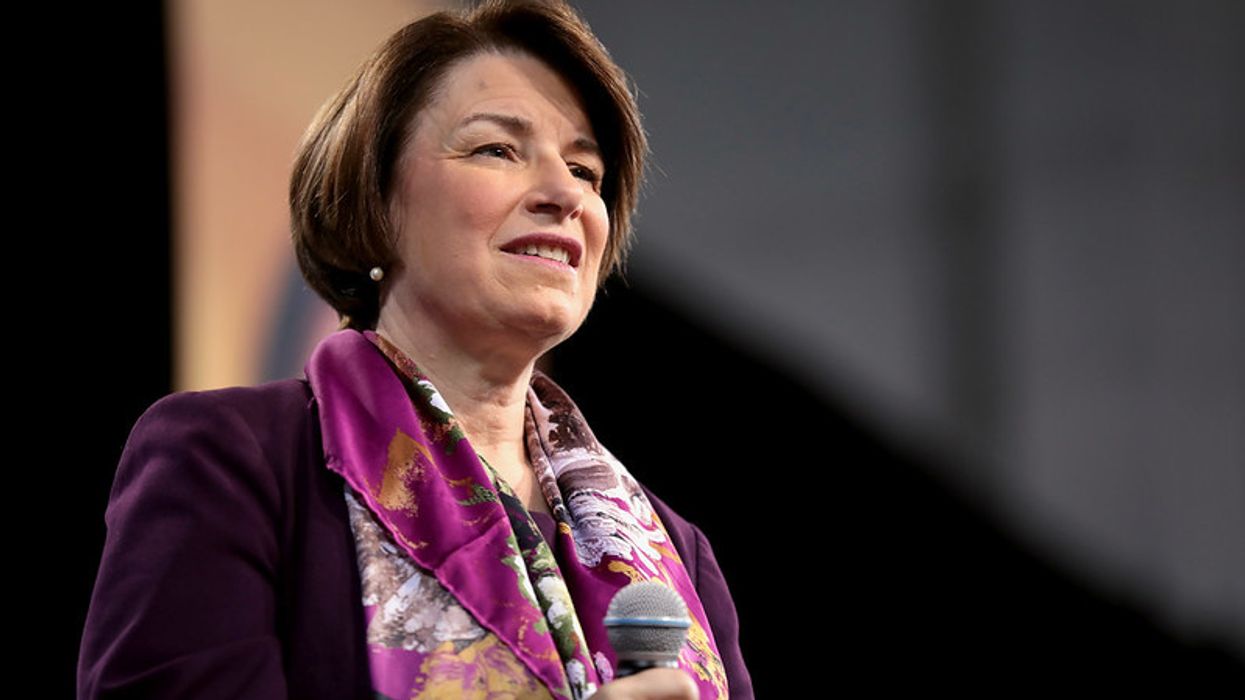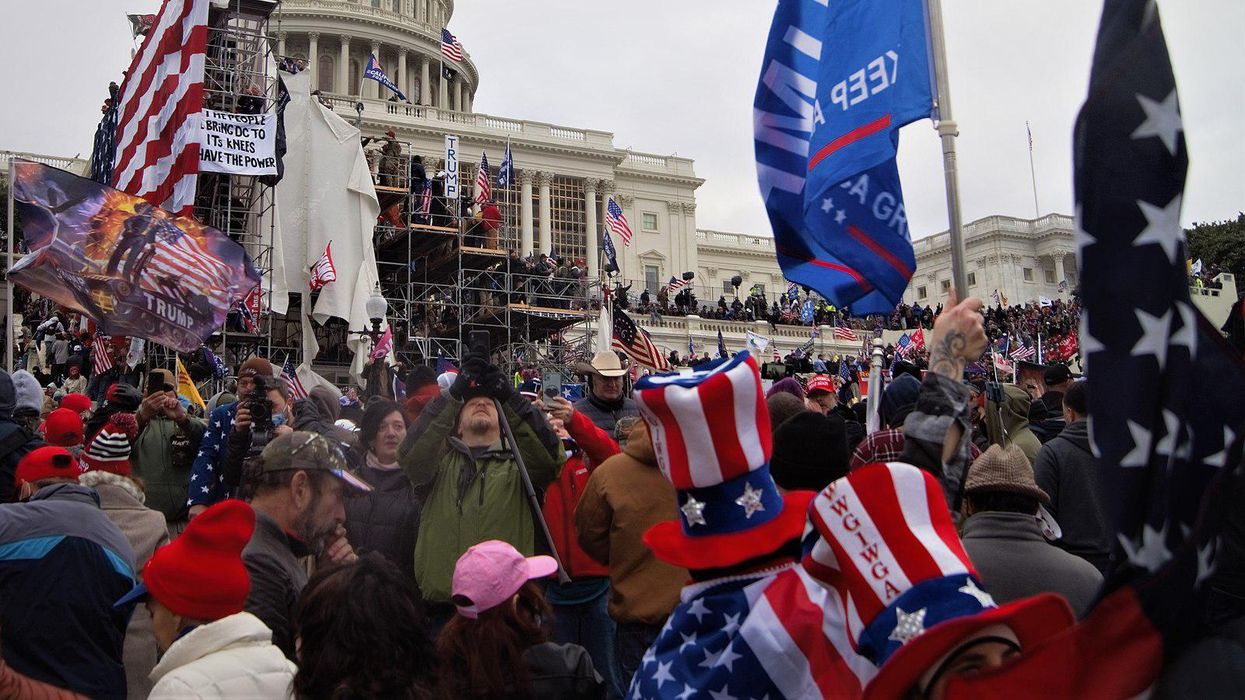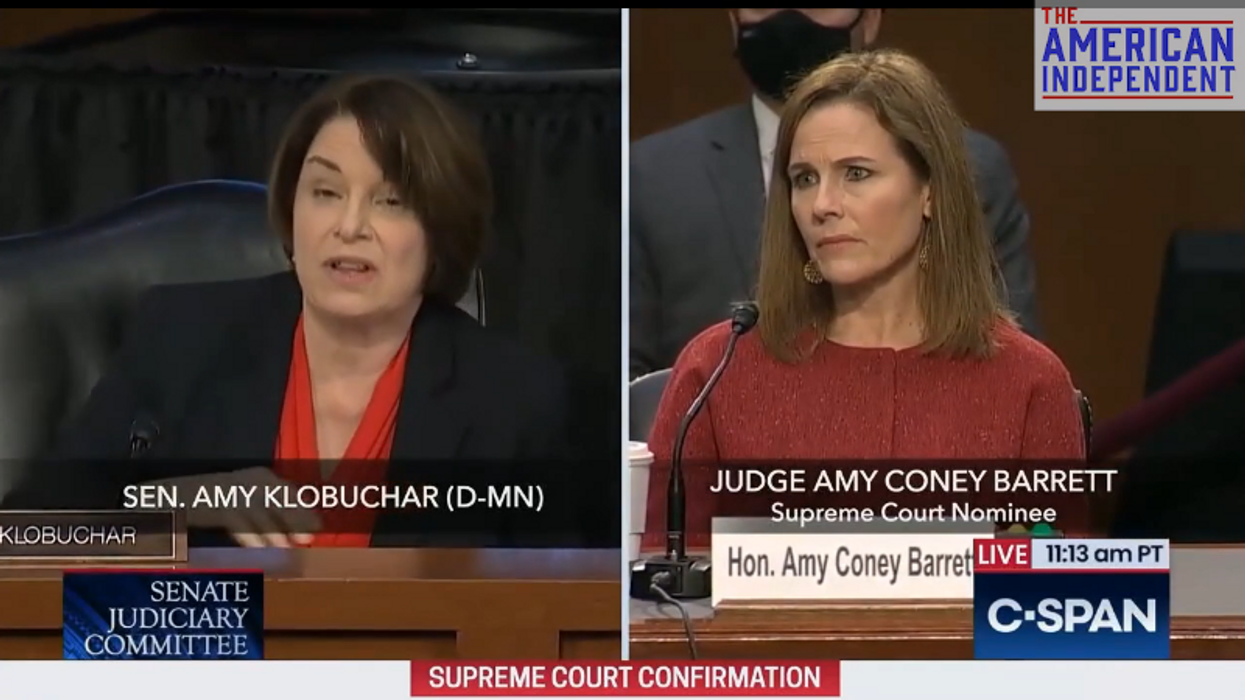Senate Advances Reforms To Prevent A Trump-Style Electoral Coup
Efforts to reform the Electoral Count Act, an 1887 law whose quirks and ambiguities became a roadmap for Donald Trump and his allies to try to subvert congressional certification of 2020’s Electoral College vote, moved a step closer in the Senate Rules Committee on Tuesday.
The Senate Rules Committee, in a bipartisan 14-to-1 vote, approved a bill that clarified state and congressional procedures for the final stages of certifying presidential election results. The bill explicitly seeks to prevent the abuses that led to the insurrection on January 6, 2021.
“I’m pleased that we are where we are today,” said Senate Minority Leader Mitch McConnell of Kentucky, who voted to send the bill to the full Senate. “Assuming that we make no changes here today, or, at most, technical changes, I’ll be proud to vote for it and to help advance it.”
The Electoral Count Act (ECA) was passed after one of the 19th century’s most disputed elections. Like 2020’s presidential election, that contest also saw states sending competing Electoral College slates to Congress and violence at the Capitol. The ECA, which took years to write, is notorious for garbled and dense passages that Trump’s most aggressive supporters sought to exploit to subvert Joe Biden’s victory in November 2020.
The remedy, The Electoral Count Reform and Presidential Transition Improvement Act or S.4573, seeks to blunt the cornerstones of Trump’s attempted coup.
“The Electoral Count Act was largely overlooked for over 130 years, but it was at the center of a plan to overturn the 2020 election and the will of the American people, that, as we all know who work here, culminated in a violent mob desecrating the Capitol,” said Sen. Amy Klobuchar (D-MN), who chairs the rules committee. “They did this by making false claims that this law allowed the vice president to refuse to accept Electoral College votes that were lawfully cast, by recruiting state legislators to declare a failed election and appoint their own [presidential] electors, and by exploiting the fact that the law allows one single senator and one single representative to object to a state’s Electoral College votes and use baseless claims to delay the count in Congress.”
The bill is the result of a bipartisan group of 11 Democrats and 11 Republicans working for months to create a narrowly focused bill that prevents abuse by either party if their candidate loses. Klobuchar and Sen. Roy Blunt (R-MO), the rules committee’s ranking minority member, highlighted four primary areas in the legislation.
“The bill explicitly rejects, once and for all, the false claims that the vice president has authority to accept or reject Electoral [College] votes. It makes it clear that the vice president role during the joint session is ceremonial,” Klobuchar said. “Second, it raises the threshold to challenge the electoral votes [of any state] during the joint session of Congress to guard against baseless claims. Right now, just two people out of the 535 members can object and slow down and gum up the counting. This bill would raise the threshold to one-fifth of Congress.”
“It replaces the undefined and controversial ‘failed election’ clause [in the 1887 law] and ensures that states can’t overturn the results of an election,” Blunt said, referring to state legislatures overriding their state’s popular vote for president. “It provides for an expedited federal court process to ensure states issue [presidential Electoral College] certifications after the [popular vote result of the election] has been certified in their state.”
The only rules committee member to object to the bill and vote against it was Sen. Ted Cruz (R-TX), who claimed that it was a federal power grab.
McConnell, however, called the bill “common sense” and said that it – not a recently House-passed ECA reform bill – was the “only bipartisan compromise… [that can] become law.”
“It’s common sense… that the vice president obviously has no personal discretion or power over the presidential vote,” McConnell said. “It is common sense to protect states' primacy in appointing their electors, but also strengthen requirements that states publicize their rules before the elections and stick to them. It’s common sense to make technical fixes to other related laws like the Presidential Transition Act. And it's common sense that our colleagues leave chaos-generating bad ideas on the cutting-room floor.”
Several voting rights organizations praised the committee’s action. But they also noted that it was the only pro-democracy legislation that stood a chance of emerging from Congress after the 2020 presidential election, which they said was insufficient.
"Fixing the Electoral Count Act is critical, but it is not enough. It eliminates some avenues for election sabotage, but many others remain,” said Wendy R. Weiser, vice president of the Democracy Program at the Brennan Center for Justice at New York University Law School.
On the other hand, Protect Democracy, a nonpartisan nonprofit organization opposing more authoritarian government, noted the reform was supported by many Republican senators.
“The bipartisan vote to advance the Electoral Count Reform Act (ECRA) underscores the momentum and cross-ideological consensus… [to] strengthen presidential elections in the future,” said Genevieve Nadeau, Protect Democracy counsel. “We now call on Congress to finish the job and pass the strongest ECA reform possible by the end of the year.”
Steven Rosenfeld is the editor and chief correspondent of Voting Booth, a project of the Independent Media Institute. He has reported for National Public Radio, Marketplace, and Christian Science Monitor Radio, as well as a wide range of progressive publications including Salon, AlterNet, The American Prospect, and many others.
This article was produced by Voting Booth, a project of the Independent Media Institute.




